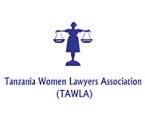Community / Land projects / Reduced Emissions from Deforestation (REDD+) in DRC - Deforestation and development with REDD+
Reduced Emissions from Deforestation (REDD+) in DRC - Deforestation and development with REDD+

€2917635.159
11/18 - 12/23
Completed
This project is part of
Implementing Organisations
Donors
Data Providers
General
The Swedish Embassy in Kinshasa has conducted dialogue with the Democratic Republic of the Congo’s National Fund for Reducing Emissions from Deforestation and forest Degradation (FONAREDD) on Sida Project Support during the period 2018-2022. Sida intends to contribute to FONAREDD with 36,580,000 SEK, with soft earmarking to the fund's integrated REDD project in the province of Equateur. The Fund currently funds eight projects, and another ten has been planned for. The total budget for all 18 projects is about 180 million USD. The fund is owned by the Congolese Government, but it is administered, according to agreement, by UNDP. The Equateur project aims at stabilizing deforestation, afforestation an improving living conditions and income for the province's rural population through; (i) Improvement of governance by capacity building of decentralized services and capacity-building by local community governance; (ii) land use planning, through development planning and zoning as a basis for land management; (iii) sustainable community-based forest management, to reduce pressure on forests and enhance forest carbon stocks; (iv) enhancement of agricultural activities and use of savannah areas through promotion of agroforestry and conservation agriculture, carried out collectively or individually by households to increase livelihoods and diversify income sources, while reducing pressure on virgin forests; (v) support for urban and peri-urban forestry for food security and the creation and promotion of sustainable energy sources; (vi) access to family planning services and nutritional services for local populations and indigenous peoples. The UN Food and Agriculture Organization (FAO), which is UNDP's implementing partner, will execute the project together with WWF. The project's total budget is SEK 91 450 000, of which Central African Forest Initiative (CAFI) accounts for SEK 54 870 000.
Objectives
The objective of the national REDD program in the DRC is to: (i) Reduce Greenhouse Gas Emissions from Deforestation and forest degradation, and increase the level of uptake by sinks in the forest sector; (ii) generate co-development benefits. Sweden has chosen to contribute to the National REDD Fund with soft earmarking of funds to a specific project. This additional funding has allowed for a wider scope of the project and strengthening of the project's gender equality perspective. The specific objective of the Equateur intervention is to Stabilise deforestation and afforestation, and improve the living conditions and incomes of rural communities through: (i) Improvement of governance by capacity building of decentralized services and capacity-building by local community governance; (ii) Land use planning, through development planning and zoning as a basis for land management. Sustainable community-based forest management, to protect and enhance forest carbon stocks. (iii) Sustainable community-based forest management, to reduce pressure on forests and enhance forest carbon stocks; (iv) Enhancement of agricultural activities and use of savannah areas through promotion of agroforestry and conservation agriculture, carried out collectively or individually by households to increase livelihoods and diversify income sources, while reducing pressure on virgin forests; (v) Support for urban and peri-urban forestry for food security and the creation and promotion of sustainable energy sources; (vi) access to family planning services and nutritional services for local populations and indigenous peoples.




